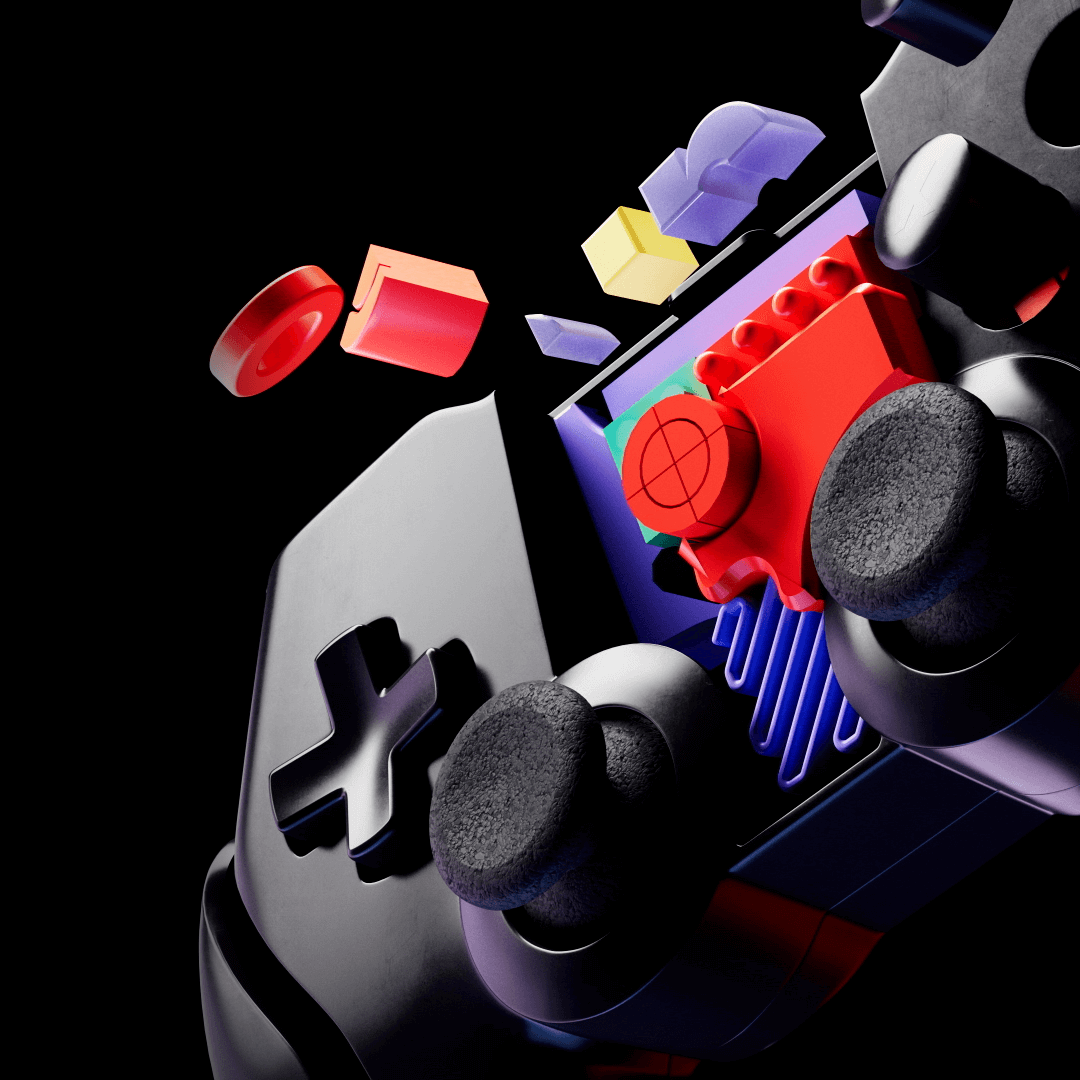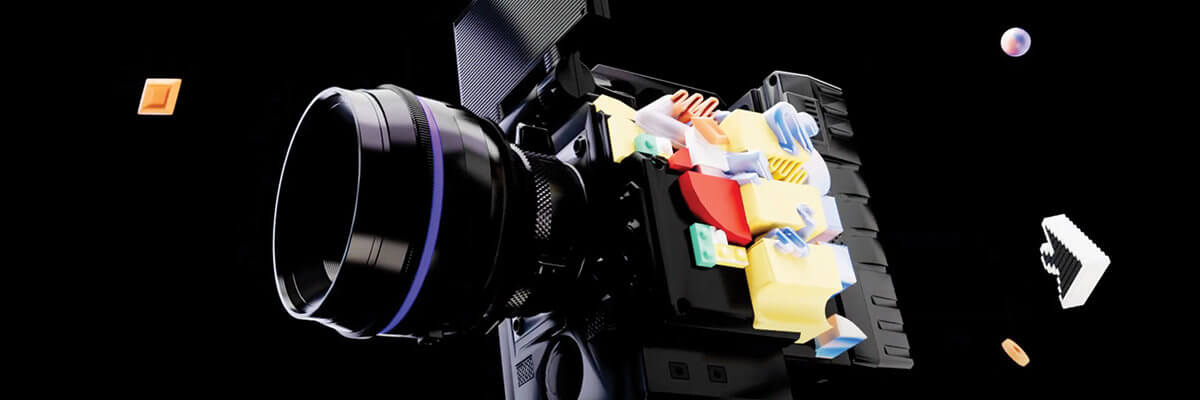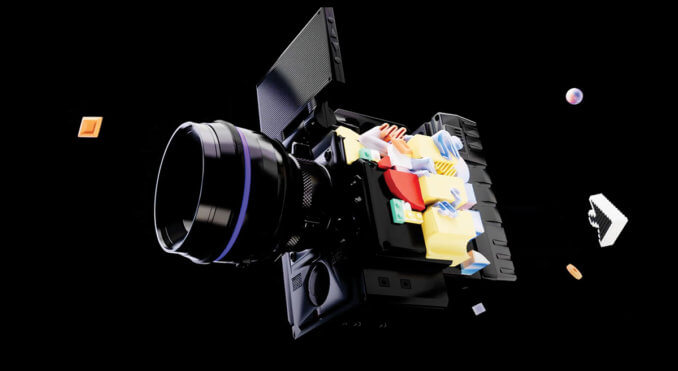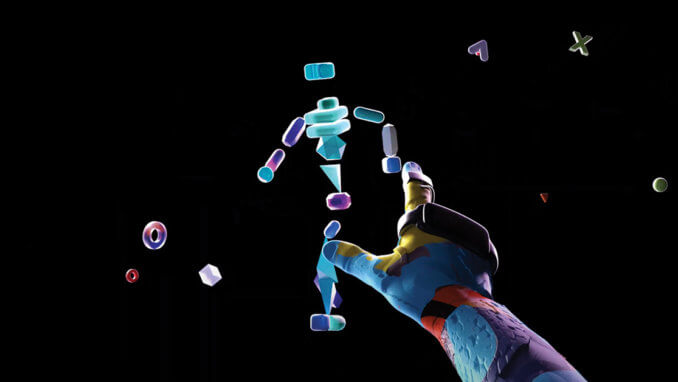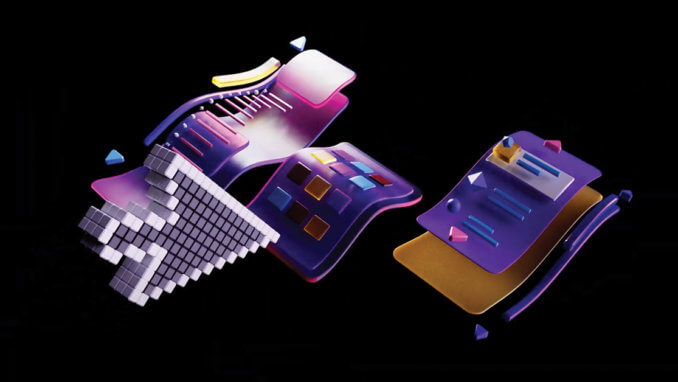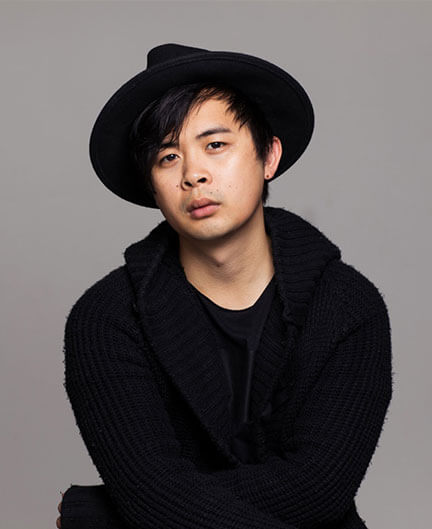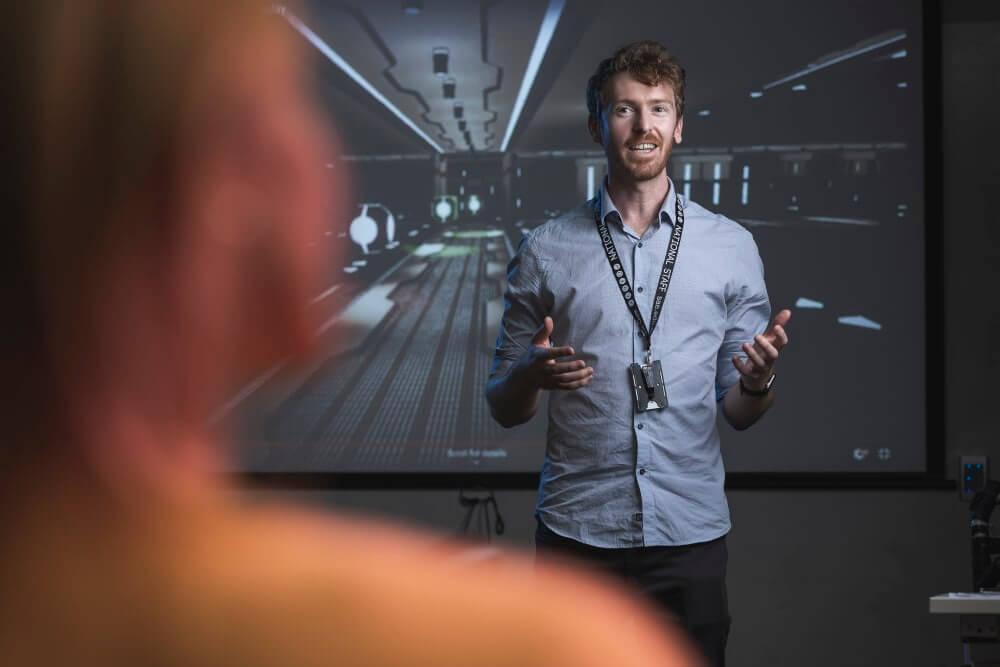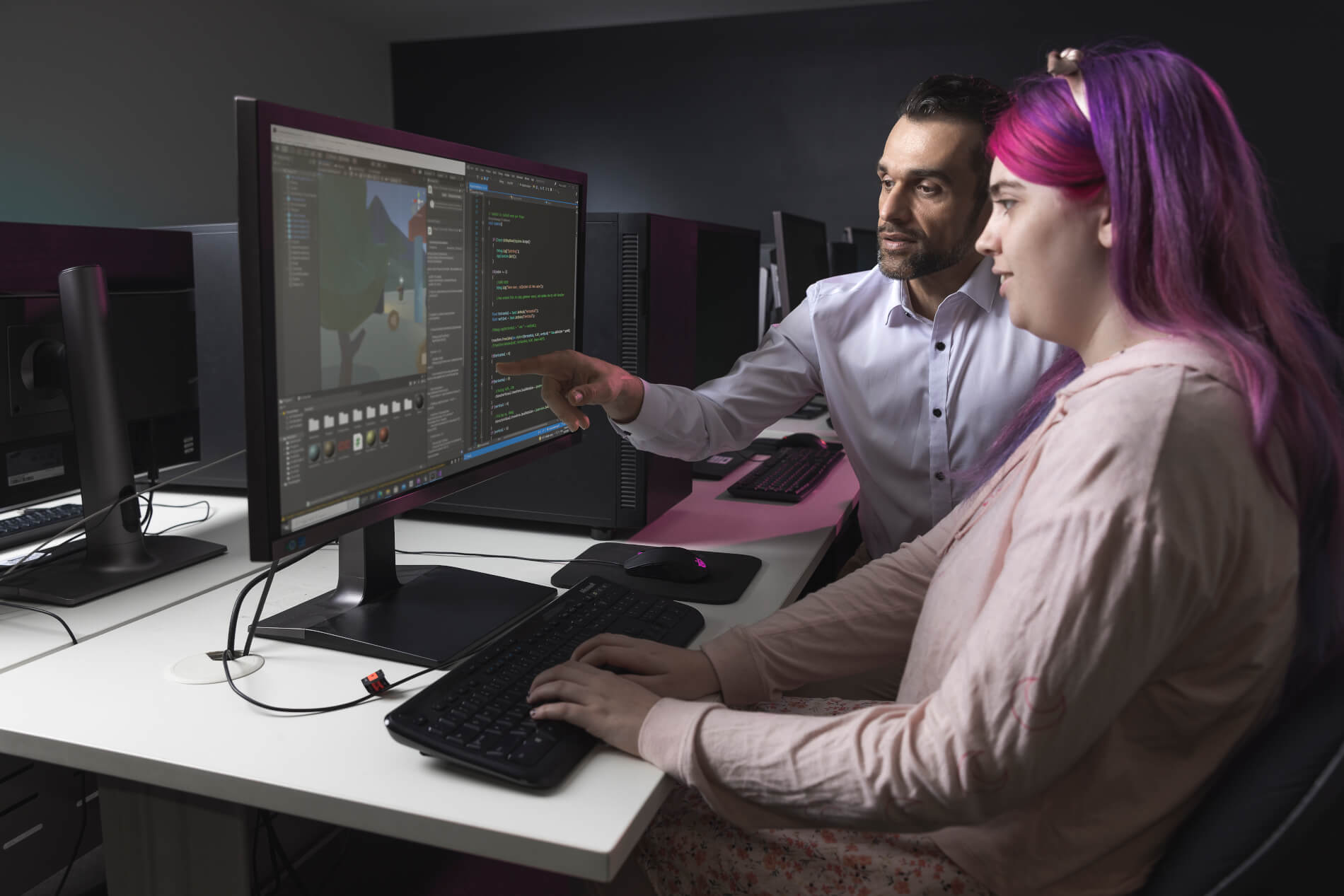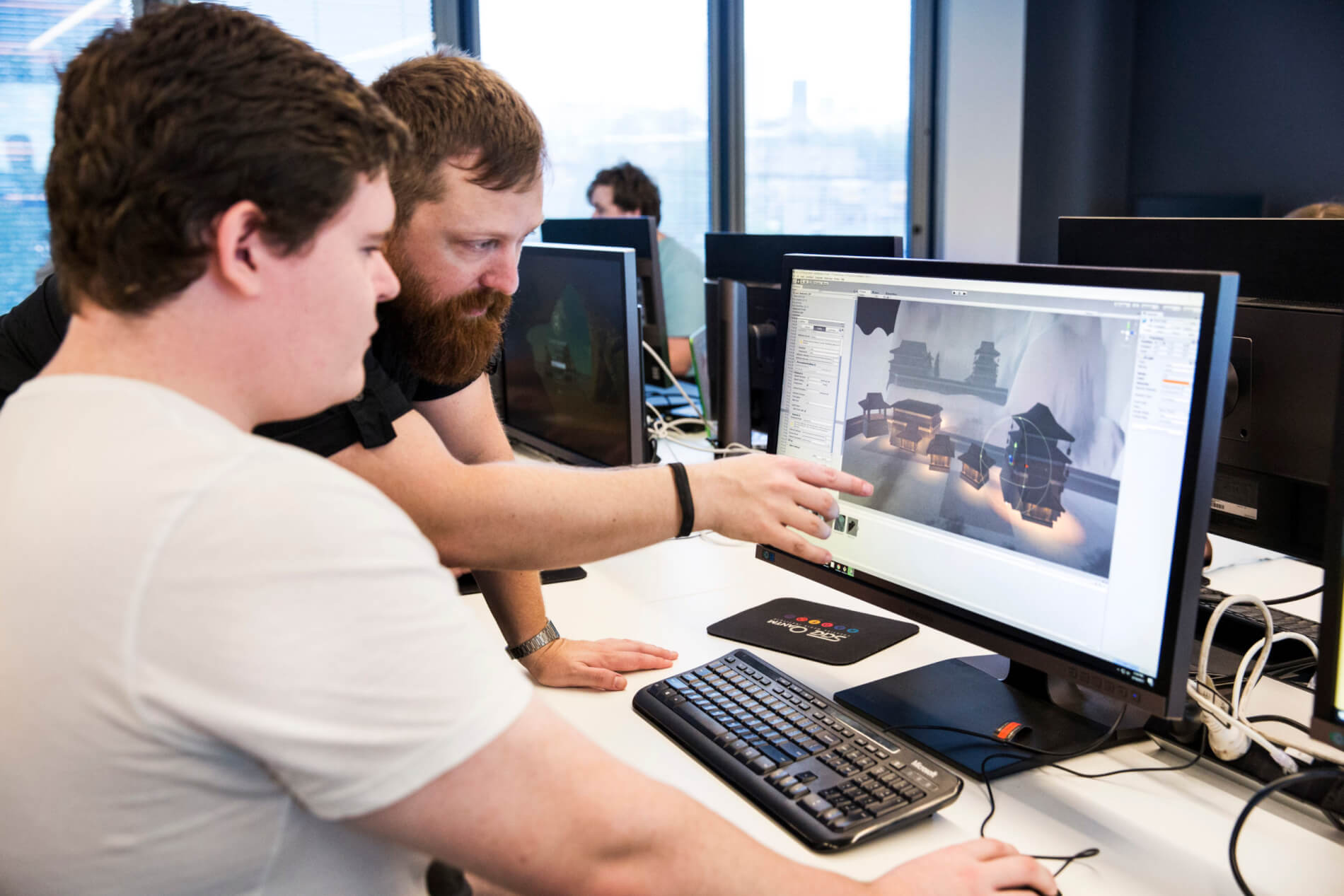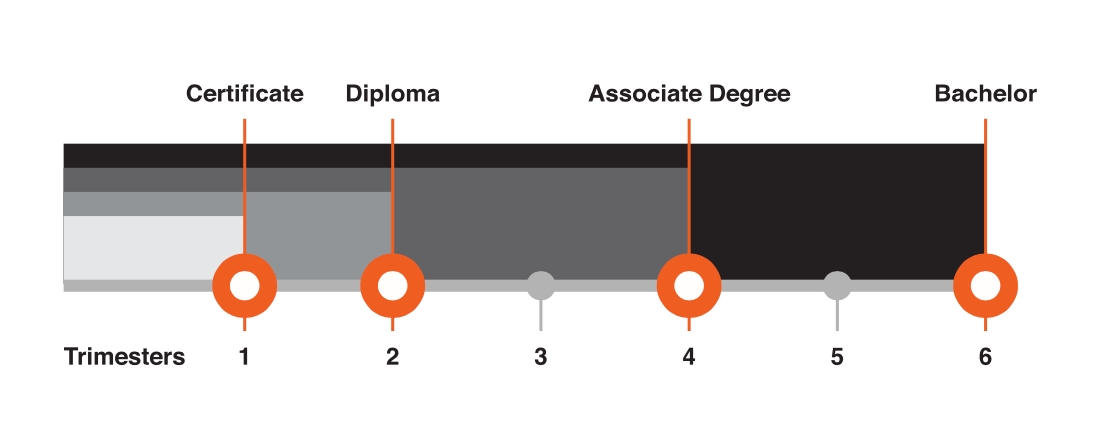Associate Degree of Games Development
START YOUR CAREER AHEAD OF THE GAME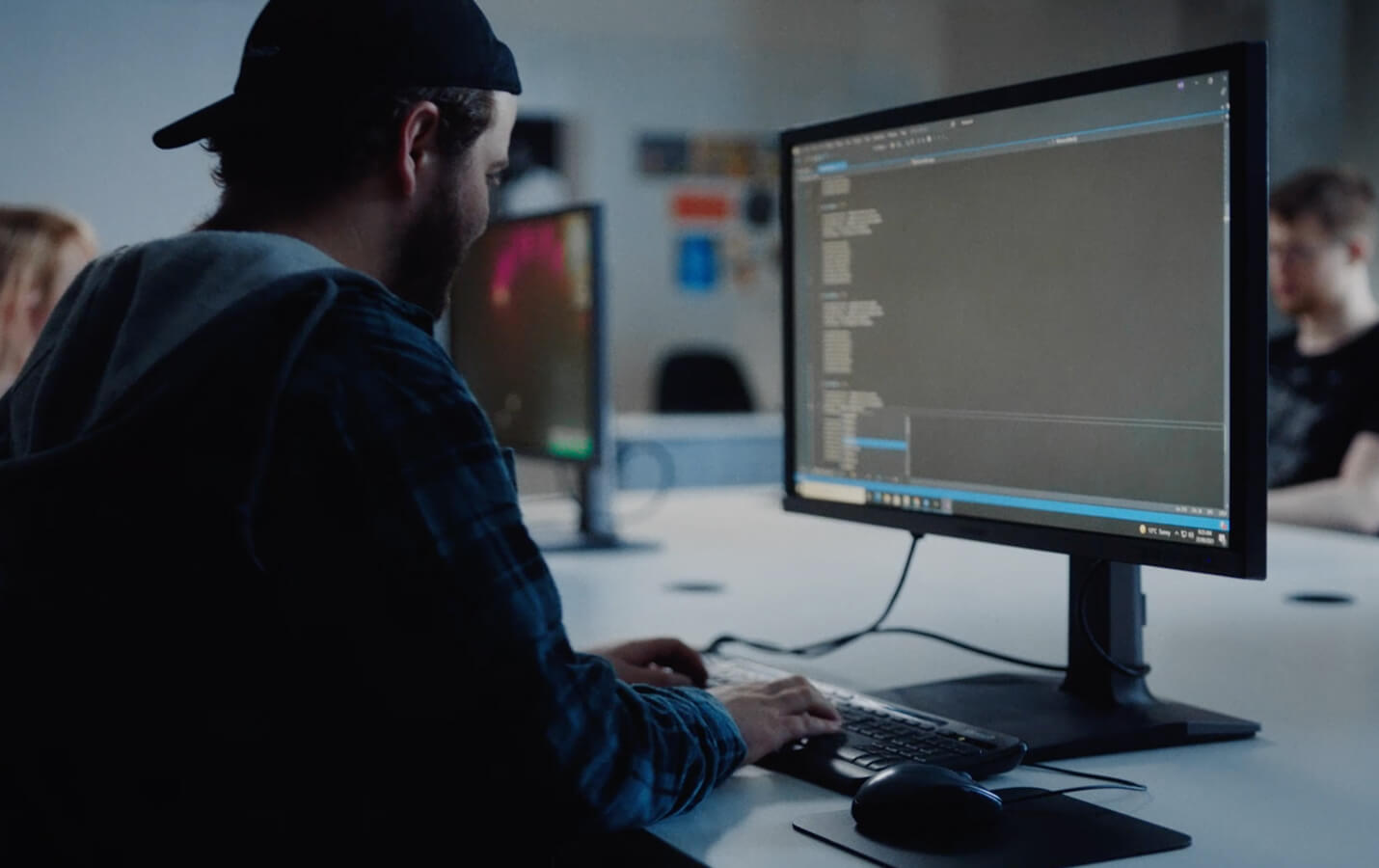
Units x Costs ($AUD)
4 x $3,807
4 x $2,728
1 x $5,456
2 x $8,184
Indicative Total Course Fee*
$47,964 AUD
Plus Student Services and Amenities Fee (SSAF)
* The Indicative Total Course Fee & Indicative Annual Course Fees reflects that students are charged fees on a per unit basis and the fee for a unit may increase.
For more information view the SAE Fee Schedule or visit the Fee & Payment page.
Units x Costs ($AUD)
4 x $4,439
4 x $3,178
1 x $6,356
2 x $9,534
Indicative Total Course Fee*
$55,892 AUD
Plus Student Services and Amenities Fee (SSAF)
* The Indicative Total Course Fee & Indicative Annual Course Fees reflects that students are charged fees on a per unit basis and the fee for a unit may increase.
For more information view the SAE Fee Schedule or visit the Fee & Payment page.
Complete your course faster by studying units over 15 months. (4 trimesters)
Complete your course faster by studying units over 15 months. (4 trimesters)
Whilst still classified as a full-time study load, you will complete the units over two years. (6 trimesters)
If you want to take a little longer, that’s ok too. We’ll help you work out the best study load to suit your needs.
Note: Part-time is not available for international students.
May 2024
September 2024
February 2025
May 2024
September 2024
February 2025
May 2024
September 2024
February 2025
May 2024
September 2024
February 2025
May 2024
September 2024
February 2025
May 2024
September 2024
February 2025
ASSOCIATE DEGREE OF GAMES DEVELOPMENT
Make the transition from gamer to a game developer with the Associate Degree of Games Development and explore a range of genres for a range of platforms – roleplaying games, platformers, adventure, PC, FPS, mobile, and VR.
Not only are games becoming some of the biggest entertainment properties in the world, but industries are now also using the positive effects of ‘gamification’ and serious games to encourage behavioural change, particularly in fields of healthcare, training, and safety.
Games have the potential to change the world, and we can give you the skills to help change yours. Our associate degree starts at the base level and builds your expertise in programming and design.
As a student of Games at SAE, we offer small classes and one-on-one mentoring opportunities you may not find in a larger university You’ll develop and apply advanced techniques and strategies to use industry software like Unreal Engine, Unity3D and Maya. In addition to this, you could develop for technologies such as Oculus Rift, HTC Vive, Android, and iOS. You’ll also learn to speak how the professionals do with expert mentors guiding you in industry-standard languages C++ and C#.
Your growth and development as a creative practitioner will be assessed through the completion of industry-based projects. This will ultimately help you build up a body of work and a portfolio to share with potential employers or first clients.
In preparation for an industry that commands agility and adaptability, you’ll cut your creative teeth on projects in partnership with your course peers. As your skills develop and you work on more dynamic projects, you’ll apply your capabilities to cross-discipline projects. By the end of your course, you could be collaborating with fellow students across all SAE disciplines.
With an Associate Degree of Games Development, you’ll be ready for cutting-edge industry roles using modern creative business concepts and strategies. Career options include Mobile App Developer, Level Designer, Systems Designer, or UX Designer.
Ultimately, a qualification from SAE in Games will expand your career. As part of your course, you will be provided practical experience and work with others to help build your network. We’ll also equip you with employability skills, giving you professional strategies in communication and self-promotion.
Your epic adventure in gaming starts here.

Career Outcomes
What jobs will this course lead to?
- Level Designer
- Product Manager
- Producer
- Developer
- Unity Developer
- Quality Assurance
- Games Writer
- User Interface Designer
- User Experience Designer
- Lighting Designer
- Gameplay Programmer
- Community Manager
- Localisation Manager
- Software Developer
- Tools Developer
What our students say about SAE
Why study an Associate Degree of Games Development at SAE?
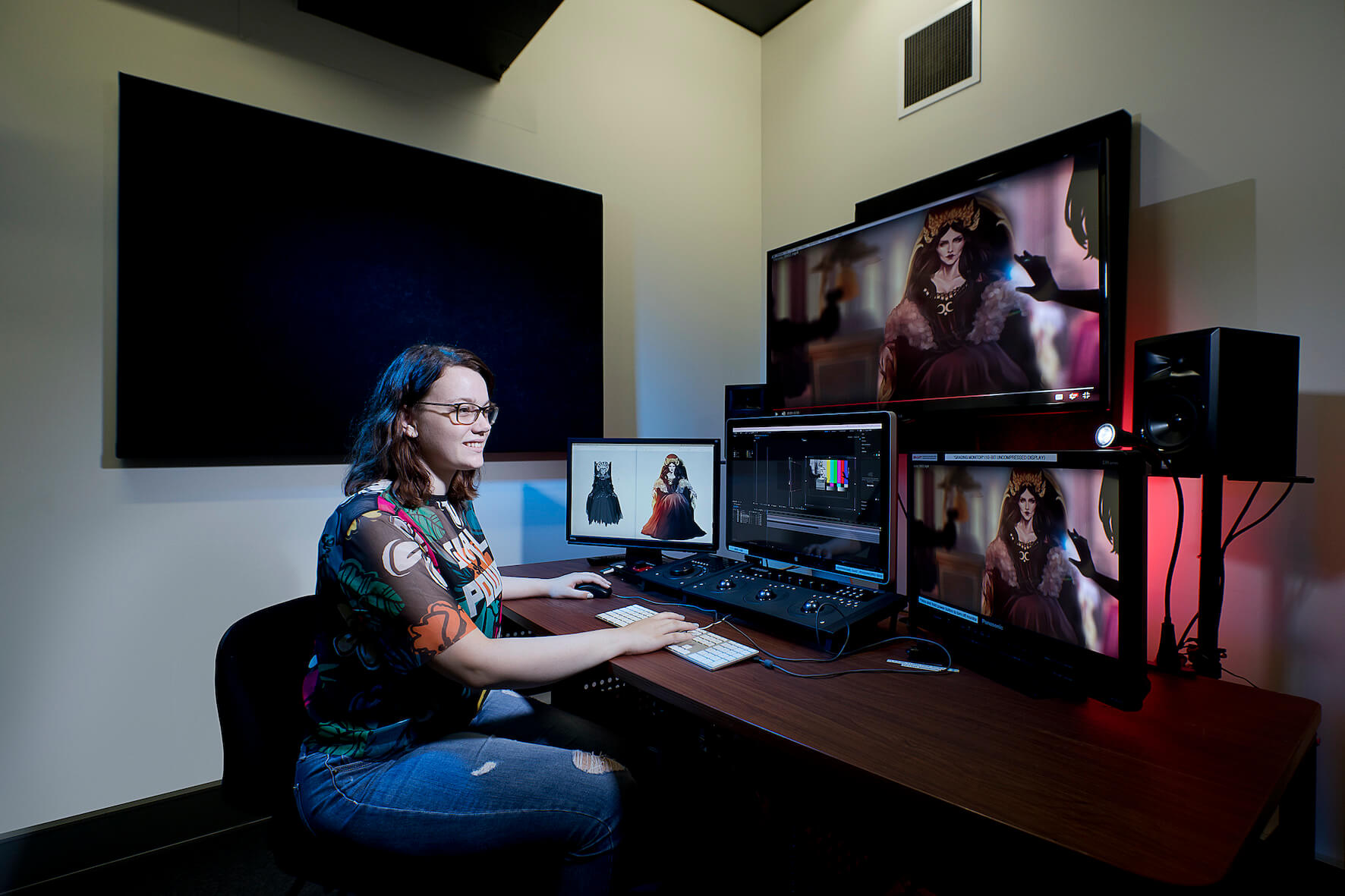
YOUR CAREER IN GAMES BEGINS NOW
Tools & Software



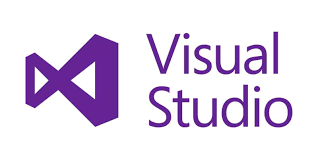
Games skills
Course Structure
The Associate Degree of Games Development has two stages that provide foundational learning and applied skill.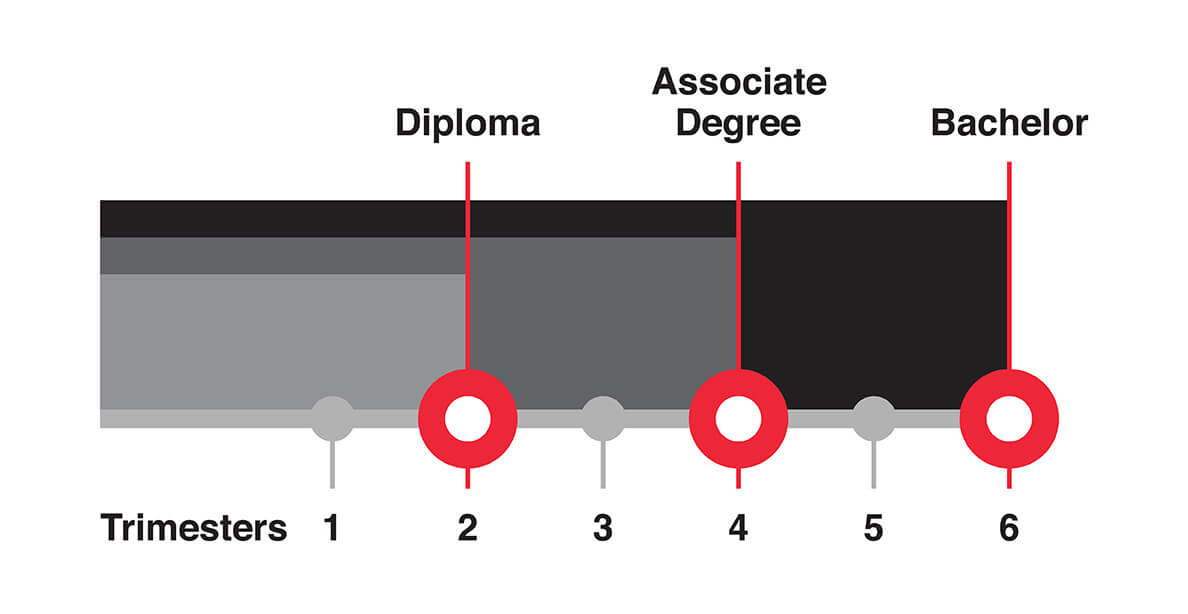
Beyond technical and craft skills, expert practitioners also have an understanding of the historical, scholarly and cultural context of games. Through developing your ability to identify scholarly and authoritative resources, your skills in research, and your capacity to argue, present and write academically, you will become a more literate creative. You'll be able to apply these skills in industry to build better outcomes for your project and company with strong links to both the past and future of Games.
Potential projects: Working in a team, you'll develop a paper and digital presentation in the style of a Games Developer's Conference.
Game scripting is a common method of controlling the behaviour and sequencing of events and interactions within a game or scenario. Scripting can be thought of as a discrete language that uses principles of mathematics, combined with rules of syntax and patterns, to provide instructions for a computer to follow.
In this unit, you will implement a range of basic game functionality by utilising data manipulation, formulas, object creation, defining of behaviours, and working with event systems. You will also build an awareness of how to use these elements within common game scripting languages and environments.
Potential projects:
Build a simple game from scratch using an existing game engine such as Unity with C#.
This unit will introduce you to the mindset and skillset of the creative entrepreneur, and transform your approach to problem-solving. You will analyse historical and contemporary models of leadership and best practice in entrepreneurship, and use tools for project design that include ideation, problem framing, and pitching. The skills in this unit will assist you in developing your creative thinking, exploration, and experimentation methods, allowing you to experiment with project design and content for creative media.
Games development uses assets from a range of creative sources including 3D models for environments and objects and 2D assets for menus and backgrounds. In this unit You'll gain an understanding of the production and implementation of these types of assets.
You'll gain practical experience with 3D modelling, lighting, shading, animation and rendering to gain a foundational understanding of a range computer graphics concepts. You will also reflect on the theoretical principles behind the development of computer graphics through critical analysis.
In order to design and create games we need to be able to understand game systems and how they generate player experience. Games are complex, sitting at the intersection of art, technology, and psychology. To be able to become an effective game developer, it's important to start at a point where you can experiment and see the immediate outcomes of your decisions upon a product. It's for this reason that most game developers start off with small, rapidly developed games or modifications to check their thinking. In this module you will learn how to analyse existing games to identify and describe their core elements and interactions. You will apply this understanding to manipulate existing games in addition to designing new ones, and then check the effectiveness of your work through playtesting and player feedback.
Game systems increase in importance and complexity in proportion to the size of a project. This relationship requires modular and reusable systems within game development pipelines, which can be applied to other projects. In this unit, you will extend basic scripting principles by implementing event-systems and applied mathematics in the form of modular game systems. This will involve reviewing good code design by developing or modifying fundamental game systems driven by geometry, vectors, and physics, such as input systems and character controllers, as well as researching, designing, and developing a complex game system, such as a 2D boss battle system, RPG dialogue system, or action-adventure inventory system.
In order to create games, you must be able to manage the complexity of the game development process. In this unit You'll build familiarity with toolsets and existing industry practices to formulate and execute clear plans for delivering games assets and features on time and of a high quality.
Work in a team to pitch, design, plan and deliver a game in response to a brief, where You'll extend your existing skill sets in design and scripting to craft a broader range of gameplay systems and features. This will involve learning and applying teamwork and organisational skills with your your classmates, as well as feedback, testing and iteration processes for the game itself.
Potential projects:
Work as part of a team to pitch, design, plan and deliver a game in response to a brief.
In CIM210 you will be working on interdisciplinary projects that relate to some of the most important concepts in contemporary media production. You will learn practical and analytical skills in order to help you develop your creative powers and meet briefs that take you out of your comfort zone. You will need to bring all of the skills you have learned so far: technical skills, research skills, communication skills and a growth mindset, and be prepared to encounter new concepts and new ways of working.
Media and culture are not simply entertainment, but something that affects the “real world”, our everyday lives, and our worldviews. As such, we will not ask whether media accurately reflect the real world but instead ask how media shape, reinforce, and challenge power structures that influence our understanding of the world and ourselves. This unit takes a ‘critical theory’ approach to analyze media and culture. In this unit, you will explore media texts, contexts and meaning, society and subjectivity, pop culture aesthetics, and critical cultural discourses that inform creative media practices.
Drawing on a range of creative content and analytical frameworks, you will be encouraged to develop ways of thinking about media and culture that demonstrate a broad awareness of aesthetic principles and stylistic trends; subjectivity, agency, ethics, and relations of power; contexts, disciplines and discursive formations. In support of this exploration, you will produce a range of media artifacts that explore and contextualize the relationship of media to culture through individual analysis, collaborative and interdisciplinary creative practice, and critical reflection.
Game design and development relies as equally on knowledge and skills, as it does on the eureka moment of creative design inspiration.
In this unit, you will ideate and develop one or more game prototypes. You will test these against criteria for success and identify the best prototype.
You will develop this prototype further, exploring more advanced game design techniques and evaluate them with an audience.
Potential projects: In collaboration with Audio and Animation students you will work towards developing a number of projects within a simulated studio environment.
Game development relies on processes and patterns to solve common problems that are well known to programmers. You will undertake these processes and evaluate common programming patterns that are core to the development of games. You will also explore more advanced mathematics techniques that are utilised in common game-engine systems.
In this studio unit, you will focus on developing games with meaning, inquiry, and purpose.
As a game designer, you have an opportunity to tell authentic stories and narratives through gameplay and other mechanics. You will employ techniques to convey a consistent theme and style throughout your project, and influence play in outputs and inputs.
Game development requires the development and implementation of tools that extend existing or new game engines in order to achieve efficient pipelines. Game programmers, in collaborating with game designers, are critical to meeting the technical needs of the game project. In this studio module, you will develop tools, libraries, AI systems and technical-aesthetic optimisations to achieve the aims of the game project.
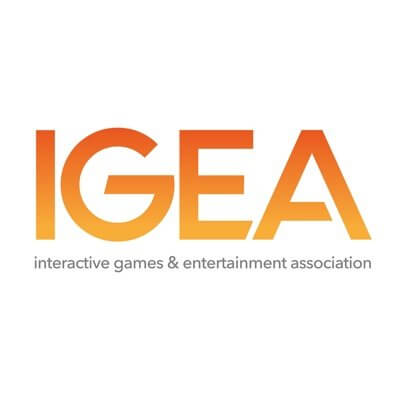

FEE‑HELP* is an Australian Government loan scheme that assists eligible fee paying students pay all or part of their tuition fees. It cannot be used for additional study costs such as accommodation or text books. The total amount of FEE‑HELP a person can use is known as the ‘FEE‑HELP limit’.
Once a person begins using FEE‑HELP, the amount of FEE‑HELP they have left to use is known as their ‘FEE‑HELP balance’.
* Terms and conditions apply. For the latest updates regarding FEE-HELP please refer to sae.edu.au/fees
SAE has three intakes per year: February, June and September. Short courses and certificates courses may have different intake timings. View our academic calendar for trimester start dates or contact your campus for further information.
We carefully design and deliver all our units to help you develop the knowledge you need to be successful in your chosen field of study. Courses and course units at SAE follow best practice teaching and learning.
Certificate
A certificate course serve as an introduction to an area of the creative industries. Potentially a small number of principles or specific skills can be covered during the course. A certificate can also provide broad contextual learning in the creative industries.
Certificates are a great way to gain an introduction to a field of study or learn a skill. Certificate courses can add to your knowledge and your career.
Diplomas
A diploma is niche skills focussed. By undertaking an SAE diploma in animation, audio, film or games, you will develop foundation skills in these specific discipline areas. Students can use the SAE diploma as a pathway to degree level study at SAE and at other Australian tertiary institutions.
Diplomas are a great option for people who haven’t studied before and/or those looking for an alternative pathway to degree level studies.
Associate Degrees
An associate degree offers a combination of niche skills combined with a greater depth and breadth of theoretical knowledge and analytical skills. An associate degree offers portable skills and develops sustainable, lifelong learning.
Students can use the SAE Associate Degree as a pathway to degree level study at SAE and at other Australian tertiary institutions. SAE associate degree courses attract Fee-Help for Australian students.
Bachelor Degrees
A bachelor degree offers a rigorous combination of niche skills combined with a greater depth and breadth of theoretical knowledge and analytical skills. This knowledge is applicable to both your creative media discipline and the professional world more broadly.
A bachelor degree offers you an entry point to professional work, builds portable skills, and develops sustainable, lifelong learning. Key high learning skills are a requisite of the bachelor degree and graduate study options are available upon completion.
Bachelor degrees are suitable for people looking to develop professional skills and knowledge and to build long-term, successful careers in their industry of choice. SAE bachelor degree courses attract Fee-Help for Australian students.
CREDIT AND RECOGNITION OF PRIOR LEARNING
SAE may recognise your prior learning and may grant credit towards satisfying the requirements for a higher-level program. This is applied where previous learning is considered equivalent to the content and learning outcomes prescribed for units within the program.
For full details, please refer to SAE's policy on recognition of prior learning and credit transfers.
